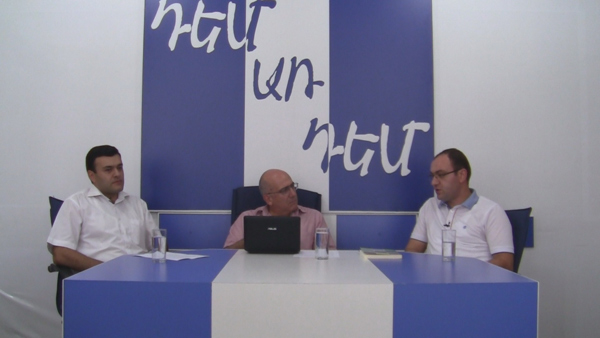The topic of “Aravot” online on the air is discussed between the Head of Public Relations Service of the Judicial Department, Arsen Babayan, and the member of Chamber of Advocates, Yervand Varosyan.
Aram Abrahamyan – Last fall, the lawyers were conducting rallies. One of the topics was that the Court of Cassation does not accept lawsuits and complaints and returns without examining them. Now, is the problem solved? Does it examine the complaints now, or you do not submit them anymore?
Yervand Varosyan – We continue, of course, submitting complaints by the law-prescribed procedures. However, the situation with regard to the acceptance of proceedings of the complaints has remained the same; there are no changes. Of course, a question may arise of why there is no protest now, I must say that there are still complaints among wide masses of lawyers. There is just such a problem: we took this step for a few times, but it did not result in any positive changes. Hence, in this regards, there is also a discussion about changing something inside the advocacy community, perhaps, the tactics, or to pass to some other protests, which may result in something.
A. A. – Why are the courts left not privy to the complaints of advocates?
Arsen Babayan – I do not agree that they are left not privy, there were the so-called two strike, in 2012 and in 2013, during which a clear answer was given that the issues related to acceptance of complaints by the Court of Cassation are regulated by the law. As to justifications for rejecting the complaints, it was also referred to by the European Court, basically, saying that the justification given is quite sufficient. Submitted complaint does not comply with the provisions of the law, by which it should be submitted. But to say that nothing has been changed, it will not be quite true, because lately a number of changes were made. Particularly, the requirements related to the complaint. Now and onwards, only the lawyer is lawyer can submit a complaint to the Court of Cassation, simultaneously, a law was imposed on the Court of Cassation to justify the rejections in more details and more comprehensively.
A. A. – Aren’t you satisfied with this amendment of the law?
Ye. V. – Frankly speaking, the amendment leads to the fact that the complaints may become less because henceforth the citizens will not be able to submit the complaint, he should apply to a lawyer. Maybe it’s good form the lawyer’s point of view that the people have to apply to them, however, I think that the citizen is able to exercise his right to appeal without a lawyer. All of this is done indirectly to make the number of complaints actually less, also the requirements are added: the establishment of the e-versions and so on, and the impression is that this pursues a tendency of making the number of complaints less by purely manual.
A. A. – Does it happen that not the Court of Cassation, but the Court of First Instance returns the application saying that it is not formulated correctly? Do the lawyers get offended of it?
Ye. V. – No, returning of the application by the first instance, of course, does not offend because it is clearly stated why it is returned.
A. B. – Simply, the applications are returned by the first instance only in the event of formal error, let’s say, for not being signed as prescribed by the law, for not writing the name and the last name, and so on.
A. A. – Anyway, the Constitutional Court said to the Court of Cassation, “If you’re returning, do it, but justify it. Do they provide with justifications or not?
A. B. – We have just said that justifications are provided. In other words, the fact that the decision returned by the Court of Cassation reads that the submitted appeal does not comply with the law is already a justification.
The discussion in full:
Prepared by ARAM ABRAHAMYAN
“Face to Face” talk show series are released by the Open Society Foundations- Armenia. The views and analyzes found in this broadcast express the opinions of the participants, and are not approved by the Open Society Foundations-Armenia, or its Board. This broadcast is made available thanks to comprehensive financial support by the Open Society Foundations-Armenia, under the mass media support program, grant No 18624.






















































